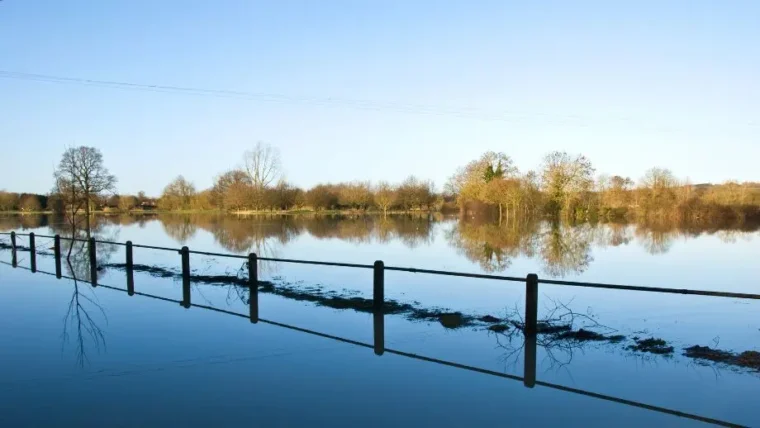Fortnightly Bulletin – 21st August 2023
21 August 2023

Guidance
Extended producer responsibility for packaging: who is affected and what to do
This guidance was introduced to provide insight on how UK organisations that supply or import packaging should comply with the Extended Producer Responsibility (EPR) for packaging, with the regulations enforced since March 2023.
If your organisation is affected by EPR, you will need to report your packaging data. The regulations apply to all UK organisations that import or supply packaging. You will need to collect and report packaging data if all the following applies:
- You’re an individual business, subsidiary or group (not a charity).
- You have an annual turnover of £1 million or more (based on your most recent annual accounts).
- You were responsible for more than 25 tonnes of packaging in 2022 (produced or imported).
- You carry out any of the packaging activities listed below.
Relevant packaging activities for the EPR 2023 include:
- the supply of packaged goods to the UK market under your own brand,
- place goods into packaging that’s unbranded when its supplied,
- import products in packaging,
- own an online marketplace,
- hire or loan out reusable packaging,
- supply empty packaging.
In July 2023, the government made a decision to defer the EPR 2023 for packaging fees for one year.
If you have all the required data for EPR 2023, recorded from 1st January 2023, you should report this data.
If you do not have all of the required data recorded from 1st January 2023, you must report all of your data from 1st March 2023. If you report data that covers a period starting from 1st March, this will be used to calculate a full year’s worth of data.
The gov.uk service for reporting your packaging data is now live and can be found at the full guidance link below.
If you have chosen to report your packaging data using a compliance scheme, you should make sure they appear on the compliance scheme public register.
Source: gov.uk
For the full guidance, click here.
Using land for homebuilding and regeneration
This guidance has been published for developers, to provide direction on identifying, acquiring, and disposing of land, determining site feasibility, due diligence, and managing risks associated with brownfield sites.
Guidance on due diligence processes including those related to land condition, land ownership, location and suitability, and dealing with constraints (including legal, planning, technical and environmental).
The ‘Planning Portal’ is a joint venture between Homes England and the Department for Levelling Up, Housing and Communities (DLUHC). It provides information on identifying and dealing with planning constraints.
The Planning Advisory Service (PAS) held a webinar on a new form of environmental assessment known as Environmental Outcome Reports (EOR) for planning.
The Survey Association (TSA) provides guidance on the various areas of surveying.
Source: gov.uk
For the full guidance, click here.
Articles of Interest
UK government heavily criticised by official climate advisors
The Climate Change Committee (CCC) has insisted that a ‘lack of urgency’ from government is holding the UK back from being able to meet its climate commitments.
The committee, which is a statutory body set up under the Climate Change Act 2008, is led by Conservative peer Lord Deben. In their annual assessment of decarbonisation in the UK, the advisors issued a series of criticisms of the government’s climate policy.
Lord Deben said he was “worried” about the state of UK climate policy and said “The commitment of Government to act has waned since our COP26 Presidency. There is hesitation to commit fully to the key pledges.”
“Government has been too slow to embrace cleaner, cheaper alternatives and too keen to support new production of coal, oil and gas. There is a worrying hesitancy by Ministers to lead the country to the next stage of net zero commitments.”
The committee also stated that the UK had ‘sent confusing signals’ on its climate policy position to the international community and that it has undermined the work it had done with the UK’s presidency of COP26.
Source: iema.net
For the full article, click here.
EAC raises green skills gap in letter to the UK government
The Environmental Audit Committee (EAC) has maintained that solar power generation in the UK is hampered by a lack of workers with the right green skills and training. The EAC is a cross-party group of MPs in the UK Parliament.
MPs who are members of the EAC wrote to Grant Shapps MP, the secretary of state for energy security and net zero, about the lack of progress made on the deployment of solar power, citing concerns about access to the electricity grid and capital costs.
Environmental Audit Committee Chairman, Rt Hon Philip Dunne MP, stated:
“There is potential for solar energy to have a bright future in the UK, but a dark cloud of delays for the industry hinders the ability to meet its full potential. Evidence to our Committee made clear that the UK has the potential to fulfil the UK’s ambition of 70GW of generating capacity from solar. But sticking points for households around access to finance and VAT being slapped on batteries remain.”
In its letter, the MPs said they were concerned about “the availability of trained staff” to deliver solar capacity, and shared statements from witnesses to the committee who has said the industry is facing a labour shortage and a lack of skilled workers.
Source: iema.net
For the full article, click here.
Fines and Prosecutions
Farming business makes payment to river charity for environmental offence
A York-based farming business which produces frozen vegetables to some of the country’s biggest retailers and manufacturers has offered to pay £23,640 to the Yorkshire Dales River Trust after spreading waste sludge on land illegally.
The farming business submitted an Enforcement Undertaking to the Environment Agency after repeatedly spreading waste sludge on its land between March 2016 and February 2022 without permission.
An Enforcement Undertaking is a voluntary offer made by companies and individuals to make amends for their offences.
Since March 2016 the company had held a permit for spreading its own waste on its land. It operates an anaerobic digestate plant on site which produces a proportion of the company’s energy, and it is the waste sludge from this plant that the company spreads on land.
Under the conditions of the permit, the company must make an application each time it wishes to spread waste, to say where it intends to spread waste, what type of waste, how much and when. Every application must also include evidence to show that there is an agricultural benefit from the spreading of waste.
Records showed that spreading took place every year from 2013 to 2021 in varying quantities from 2,664 tonnes to as much as 10,530 tonnes. However, only four applications for spreading were made during this period and all were refused, needing additional information.
Therefore, the company avoided paying applications fees which ranged from £760 to £1,718 each time.
No environmental harm has been identified from the spreading carried out by the company.
The offer from the farming business outlined that it will revise its land spreading procedures and not spread without permissions for spreading in place and cover the Environment Agency’s costs.
Source: gov.uk
For the full article, click here.
Online Learning and Events
Water stewardship and efficiency: business leadership and action
24th August 2023, 13:00 pm
The water crisis has been ranked as the third most important risk to global growth in the next 10 years, according to the World Economic Forum. With water scarcity rapidly rising up the public and political agenda, businesses will need to place it at the heart of their sustainability strategies if they are to reduce environmental impact and increase resilience.
This webinar will bring together sustainability leaders and water management experts to share tools, insights and practices that accelerate innovation and drive global water security.
For further information, click here.
How to drive decarbonisation through rigorous real-time accounting
12th September 2023, 15:00-15:40pm
This webinar is for anyone who has struggled with accounting for Scope 3 emissions. Professor Ramanna will present the E-liability solution to GHG supply-chain accounting.
Scope 3 emissions measurement seems simple on the surface, but in practice is implemented selectively and inconsistently, even by entities that are doing their best to report accurately. As a result of the inherent flaws in the process, the outturn data is unreliable and not equal to financial accounting standards.
The E-liability approach, developed by Professor Kaplan (Harvard) and Professor Ramanna (Oxford) is grounded in well-established principles familiar to investors and analysts, and will produce more accurate and auditable accounting. The E-liability approach is currently being piloted by a few large and multinational corporations.
Join this webinar to learn about the E-liability approach from Prof. Ramanna, ask questions and find out how to become an early adopter of this ground-breaking approach to GHG accounting.








